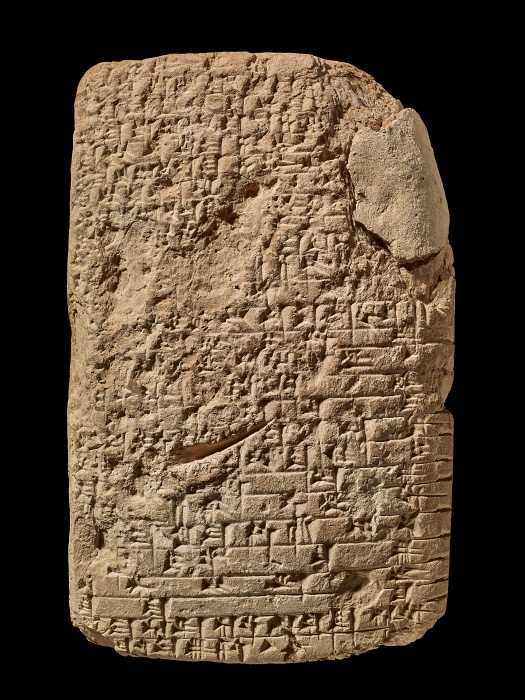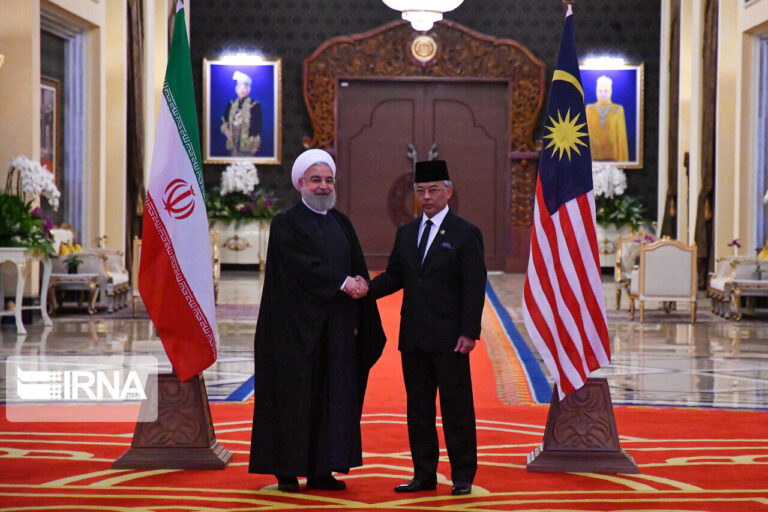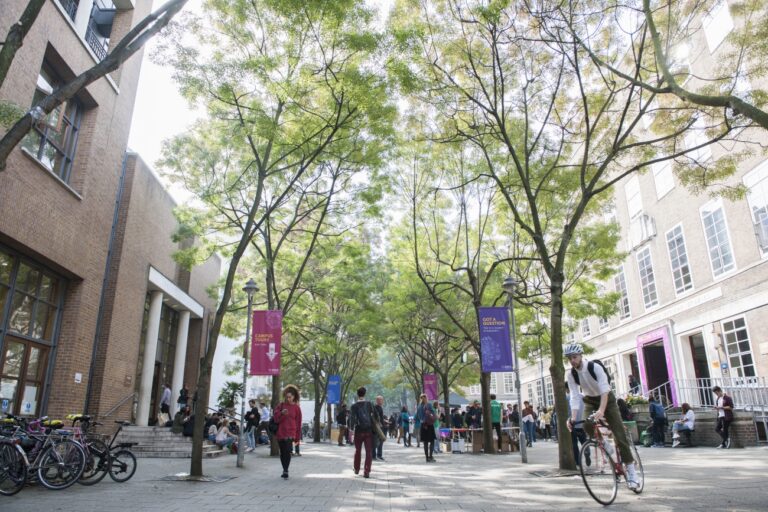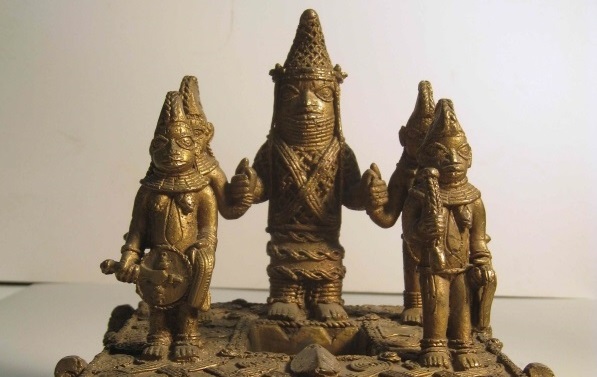迷失與掙扎:以廣東歌訴説香港人對政治變遷的無所適從 Lost and Struggling: Explaining Hongkongers’ Perplexity over Political Vicissitudes through Cantopop Songs
By Crystal Choi, Eunice Chan and Marco Lam
CW: This article and podcast contain explicit language.
前言
廣東歌一直紀錄香港社會變遷,亦係香港文化同身份認同嘅載體。1989年嘅六四事件,加添香港社會對中共管治嘅不安同恐懼,當時唔少嘅流行曲都用呢個題材。九七主權移交廿五年後嘅今日,呢份不安同恐懼都仲喺度,而廣東歌繼續肩負起記錄社會變化嘅重任。我吔一齊睇下廣東歌,點樣反映唔同時期嘅香港社會,對於主權移交同埋中港關係嘅睇法。
Introduction
Since its emergence in the 1970s, Cantopop has been documenting social change in Hong Kong. It is also a carrier of Hong Kong’s culture and identity. In 1989 the Tiananmen Massacre occurred in mainland China. This event filled the people of Hong Kong with anxiety and fear over the Handover of Sovereignty to China in 1997, and this became the subject of many Cantonese songs at that time. Today, twenty-five years later, such emotions of anxiety and fear still have not dissipated, while Cantopop continues to shoulder the important responsibility of recording social change. This article analyses several Cantonese songs created in different periods before and after the Handover and explores the footprint of Hong Kong’s history inside Cantopop.
第一節: 主權移交前 (Chapter 1: Before the 1997 Handover)
喺70年代前,國語歌同英文歌都係當時社會嘅主流,而廣東歌就冇咁普及。但到咗70年代後,廣東歌開始流行,大部份嘅作品都係表達香港人嘅奮鬥精神同埋社會現況,同埋對起伏不定嘅人生反省,例如係許冠傑 (Sam Hui) 喺1976年推出嘅《半斤八両》同埋1978年推出嘅《賣身契》。
而同香港人覺得有關於身份認同嘅歌,就有許冠傑1972年推出嘅《鐵塔凌雲》:
「富士聳峙 聽不見遊人歡笑,
作曲: 許冠傑 填詞: 許冠文、鄧偉雄、許冠傑 主唱: 許冠傑 《鐵塔凌雲》
自由神像 在遠方迷霧,
山長水遠,未入其懷抱,
檀島灘岸,點點磷光,
豈能及漁燈在彼邦」
呢一首歌表達,雖然世界各地風光再美,但都比唔上香港呢一個屬於我吔嘅漁村。呢首歌推出初期唔係太受歡迎,但係到咗中英談判嘅時候,呢首歌就漸漸受人注目。喺70年代末至80年代,就住中英對香港前途嘅談判,大量有關主權移交嘅廣東歌應運而生。而當時嘅廣東歌,分別喺兩個時段,有主要兩個氛圍。第一個時段就喺由中英雙方談判去到六四之前,當時中英雙方就住香港前途談判嗰陣,香港人當時係冇權參與,佢哋最多只可以喺社區論壇發表意見。 嗰時香港人對主權移交抱住懷疑或者擔憂,例如1987年由黃霑(James Wong)填詞嘅《黎明不要來》提到:
「不許紅日 教人分開
作曲、填詞:黃霑 主唱:葉倩文《黎明不要來》
悠悠良夜 不要變改」
以紅日比喻中共政權。因為對中共統治嘅擔憂而觸發嘅移民潮,詞人將呢種無法拒絕嘅無力感放入呢首作品。
另一方面,亦有一啲穩定人心嘅歌,好似係許冠傑喺1983年寫嘅《洋紫荊》 (Bauhinia),從歌詞:
「為未來香港 抱著希望
作曲: 許冠傑 填詞: 許冠傑 主唱: 許冠傑《洋紫荊》
共謀方法 使它永安
路仍康莊 那用驚惶
望齊心一致 再破萬重浪」
我哋可以見到許冠傑想表達香港嘅未來係有曙光嘅,希望可以鼓舞人心。與此同時,好似鄭國江 (Cheng Kwok Kong) 1979年填詞嘅《東方之珠》,表達香港過去嘅輝煌都係從好多困難同變幻裏面揾出路, 歌詞入面:
「東方之珠 熬過鍛鍊
作曲:羅大佑 填詞:鄭國江 主唱:關正傑 《東方之珠》
熬過苦困遍歷多少變遷」
勉勵大家,香港呢粒「東方之珠」憑住大家嘅鬥志同刻苦,可以繼續成為令世界讚羨嘅地方。
呢一種對香港主權移交嘅無力感同埋擔憂嘅氛圍持續到1997年移交前。喺六四事件之後,香港人眼見中共嘅暴行,而感到恐懼,亦對主權移交產生極度嘅擔憂。由呢個時期開始,香港人對中共政權嘅睇法由懷疑變成恐懼。粤語流行曲嘅題材會有嘲諷中共,或者表達移民嘅慾望,由Beyond嘅《長城》可見一斑。歌詞描述中共係一個唔聽人民聲音嘅政權,更嘲諷中共唔承認六四事件,例如
「圍著老去的國度
作曲:黃家駒 填詞:劉卓輝 主唱:Beyond《長城》
圍著事實的真相
圍著浩瀚的歲月
圍著欲望與理想
(叫嚷)
矇著耳朵
哪裏哪天不再聽到在呼號的人。」
其實,類似嘲諷中共嘅歌,喺嗰個時候係不勝枚舉,當中包括黃霑喺1990年填詞嘅《人間道》、周耀輝 (Chow Yiu-fai) 喺1990年填詞嘅《天問》同埋羅大佑 (Lo Ta-yu) 喺1991年填詞嘅《皇后大道東》。
Before the 1970s, Cantopop was not as popular as Mandarin songs and English songs which were the mainstream music in Hong Kong. In the 1970s, Cantopop became popular and most songs referred to the fighting spirit and cultural context of Hong Kong, reflecting the ups and downs of life. For instance, a Hong Kong singer, Sam Hui’s (許冠傑)third album – The Private Eyes (半斤八両) – and his fourth album – The Contract (賣身契) – were released in 1976 and 1978 respectively.
As for self-identity, Sam Hui released Eiffel Tower Above the Clouds (鐵塔凌雲) in 1972:
‘Mount Fuji stands tall But I can’t hear the laughter of the tourists;
The Statue of Liberty Standing in a distant fog;
It is so far away that it cannot be got into an embrace;
The dots of the silvery lights on the beaches (of Hawaii),
How could this be compared to the fishing-boat lights in Hong Kong?’
Composer: Sam Hui Lyricist: Michael Hui (許冠文), Wai Hung Tang (鄧偉雄) and Sam Hui Song by: Sam Hui Eiffel Tower Above the Clouds
This song indicates that no matter how beautiful the world is, it cannot be compared to Hong Kong which is our own fishing village. It used to be an unpopular song until the Sino-British negotiation. The song was gradually on Hong Kong people’s radar. From the late 1970s to the1980s, the negotiation on Hong Kong’s future and the handover were recorded in Cantonese songs. There were two typical time periods, including two atmospheres. The first time period was after the Sino-British Negotiation and before Tiananmen Square Protests and Massacre. During the negotiation, there were no rights for Hong Kong people to take part in it but spoke publicly in the community forum, feeling suspicious and worried. Take a Cantonese song as an example, in 1987, James Wong (黃霑) wrote 《Dawn, Please don’t Come (黎明不要來), saying:
“Don’t let the red sun Separate us
On the long-cool night, Please don’t change”
Composer and Lyricist: James Wong Song by: Sally Yeh (葉倩文) Dawn, Please don’t Come
Wong uses ‘the red sun’ as a metaphor for the Chinese Communist Party of China (CCP) regime. Due to the concerns about CCP rules, a migration wave was triggered and this irresistible sense of powerlessness was written in this song.
On the other hand, there were calming songs like Sam Hui’s. His song – Bauhinia (洋紫荊) was written in 1983:
‘For Hong Kong’s future, we must have hope
Find solutions together to ensure its forever stability
Ahead of us is a broad road Nothing for us to fear for
We have each other to weather any storms again’
Composer: Sam Hui Lyricist: Sam Hui Song by: Sam Hui Bauhinia <t11/>
We can see that Sam Hui illustrates the bright future of Hong Kong, hoping that he could encourage people through music. Moreover, in 1979, Cheng Kwok Kong (鄭國江) wrote Pearl Of The Orient (東方之珠) to express Hong Kong’s past glory which found its way out of many difficulties and changes. it says:
‘Pearl of the Orient Survive the forgingget
through the hardship and changes’
Composer: Lo Ta-yu Lyricist: Cheng Kwok Kong Song by: Michael Kwan (關正傑) Pearl of the Orient
This encourages everyone that Hong Kong, as a ‘pearl of the Orient’, can continually be the envy of the world with everyone’s fighting spirit and hard work.
The atmosphere of powerlessness and worries over Hong Kong’s sovereignty continues until 1997, before the handover on 1st July. After the Tiananmen Massacre, Hong Kong people’s fear of the brutalities of the CCP and great worries about transferring sovereignty were formed. Since then, Hong Kong people’s perception of the CCP regime has changed from suspicion to fear. Therefore, mockery about the CCP and desires for migration are recorded in Cantonese pop songs. This is supported by Beyond’s The Great Wall (長城). Its lyrics illustrate that the CCP is a regime that does not listen to the voice of the people. It also ridicules the CCP for not admitting the Tiananmen Massacre. For example,
‘Enclosing the old country
Enclosing the truth
Enclosing the long years
Enclosing the desires and ideals
(Cries)
Covering the ears
we hear no more the cries of people anywhere or any when.’
Composer: Wong Ka Kui (黃家駒) Lyricist: Gene Lau (劉卓輝) Song by: Beyond The Great Wall
As a matter of fact, songs about mocking the CCP were too numerous to be mentioned individually, such as A Human’s Path (人間道) (1990) written by James Wong, Don’t Ask The Sky (天問) (1990) written by Chow Yiu-fai(周耀輝) and Queen’s Road East (皇后大道東) (1990) written by Lo Ta-yu (羅大佑).
第二節: 主權移交後蜜月期 (The honeymoon after the handover, 1997-2000s)
嚟到1997年主權移交以後,當中描述中港關係嘅作品相對較少。偶爾出現一啲關心社會議題嘅作品,部份廣受大眾歡迎,例如《囍帖街》、《燕尾碟》、《花落誰家》等。部份廣東歌仍然會鼓勵市民參與社會運動,或者抒發對當時政府政策嘅不滿,但呢啲作品本身好難吸引聽眾嘅關注,富有濃厚政治色彩嘅作品更好似喺主流媒體裏面消失咗。
其實呢個時期香港唔喺冇政治事件,但無可否認中港關係進入左一個蜜月期。2008年香港協辦北京奧運,當年堪稱中港關係最融洽嘅一年,係香港人最認同中國人身份嘅一年。驟眼睇似乎香港人1997年之後,放低左對於中國政權嘅疑慮,而更多人將眼光放喺經濟發展,享受中港密切關係帶來嘅利益。當時香港人喺文化同政治方面,唔算積極咁保育自身嘅特色,但又冇同中國接軌或者融合,陷入一個迷茫嘅階段
早喺80年代,達明一派 (Tat Ming Pair) 已經喺佢哋嘅作品裏面,寫左好多關於香港人對於主權移交嘅不安同疑慮,2005年佢哋推出左《南方舞廳》呢首歌。鄧小平曾經講過「馬照跑、舞照跳」,基本法裏面亦承諾一國兩制同埋五十年不變,呢首歌就係以此做背景。詞人用南與北,我與你嘅對比,去講中港關係。儘管南方都市淪陷咗,與此同時北方成爲咗神話,但始終戀棧南方溫暖嘅舞廳,因爲呢度擁有自由,所有嘅舞都可以跳。當中
「你有你意想的
作曲:達明一派 填詞:周耀輝 主唱:達明一派《南方舞廳》
我有我暗戀的
相愛總會荒廢感情」
一句刻畫中港關係當中嘅同床異夢貌合神離。
「過去永遠假的
達明一派, 《南方舞廳》
這晚永遠真的
相信只有歌舞昇平
給我一吻為證」
亦講到,中國點樣看待香港過去嘅歷史,甚至期望香港點樣看待自身嘅歷史。香港人喺身份上嘅迷惘,無跟住主權移交而消失,只好著眼當下所擁有嘅,同溫水煮蛙式嘅歌舞昇平。歌曲最後一句
「明白了你的高貴
達明一派, 《南方舞廳》
明白了我的身世
明白了」
淡然地總結香港人面對中港關係嘅無奈。
去到2010年前後,香港社會累積嘅怨氣並無消散,反而越積越多。雖然主流廣東歌仲未見到有關於政治題材同直指中共政權嘅作品,但係獨立音樂中見到越黎越多赤裸咁討論政治理念嘅歌曲。my little airport 喺呢段時間有多首相關嘅作品,除左喺2009年推出嘅《Donald Tsang, Please Die》直接攻擊時任行政長官曾蔭權,表達對佢嘅不滿之外,當中同年推出嘅《瓜分林瑞麟三十萬薪金》裏面提到
「攤分
作曲:林阿p 填詞:林阿p 主唱:my little airport 《瓜分林瑞麟三十萬薪金》
終極地攤分
攤分香港政治權力的核心
權力歸於人民
領袖應該由人民普選產生」
牽涉到管治香港嘅權力來源,同埋政權嘅正當性。最後一段
「這件事不知幾時發生
my little airport 《瓜分林瑞麟三十萬薪金》
或者到時已經過身
或者我已經不能返大陸探親」
講到香港人若果喺討論觸及中共政權神經嘅話題,就有可能入唔到中國境。可想而知,中港之間始終係有分別。
After the Handover of Sovereignty in 1997, there were relatively few works describing China-Hong Kong relations. Occasionally, there were works concerned with social issues and most of them are popular. For instance, Wedding Invitation Street (囍帖街)、Swallowtail Butterfly (燕尾碟), A Lifeless Home (花落誰家), etc. Some Cantonese songs still encouraged people to take part in social movements or expressed dissatisfaction with the contemporary government’s policies. However, these works themselves were too difficult to capture the attention of the audience. Moreover, it seems that strong political-overtone songs had disappeared from the mainstream media.
It is undeniable that the relationship between mainland China and Hong Kong did step into the honeymoon phase, but in fact, this does not mean that there were no political issues. In 2008, Hong Kong co-hosted the Beijing Olympics. It was the most harmonious year for China-Hong Kong relations and it was the year when Hong Kong people most identified with their Chinese identity. It seems that Hong Kong people put down their doubts about the Chinese regime after the year 1997. Meanwhile, more and more people focused on economic development, enjoying the close relationship between mainland China and Hong Kong and its benefits. Hong Kong people were not actively preserving their own characteristics in terms of culture and politics without any integration with China. Therefore, they were thrown into confusion.
In the early 1980s, Tat Ming Pair (達明一派) wrote a lot about Hong Kong people’s anxiety and doubts about the transfer of sovereignty in their songs. In 2005, they released Southern Ballroom (南方舞廳). This song was based on the background of Deng Xiaoping who once mentioned, ‘horse racing and dancing will go on (馬照跑、舞照跳)’ and promised to establish the ‘one country, two systems” for up to 50 years. The Lyricist uses the relationship between the south and the north, and between you and me to point out the China-Hong Kong relation. Although the southern city fell while the northern city became legendary, they were still in love with the warm southern ballroom. This was because of the freedom, they could do any dance.
“You have what you want
I have whom I have a crush on
Falling in love always wastes our feelings”
Composer: Tat Ming Pair Lyricist: Chow Yiu-fai Song by: Tat Ming Pair Southern Ballroom
This sentence depicts the different dreams and appearances of the same bed in the relationship between mainland China and Hong Kong.
‘The past is always false
Tonight is always true
Believe only singing and dancing as a whole
Give me a kiss as evidence’
Tat Ming Pair, Southern Ballroom
It also mentions how China viewed the history of Hong Kong, and even her expectation of how Hong Kong viewed her own history. Hong Kong people were confused about their identity which did not disappear according to the handover of sovereignty. Thus, like the boiling frog, they could only care about what they had recently. In the last line of the lyrics,
‘I understand your nobility
I understand my identity
I totally understand”
Tat Ming Pair, Southern Ballroom
It slightly sums up the helplessness of the Hong Kong people in the face of China-Hong Kong relations.
Around 2010, the accumulated resentment in Hong Kong society was never scattered and disappeared, but gathered more and more. Although we have not seen any mainstream Cantonese songs that are political themes and directly point out the CCP regime, more and more independent music exposes the discussion of political ideology. my little airport released numerous related works during this period of time. In 2009, the band released Donald Tsang, Please Die to verbally attack the then Chief Executive, Donal Tsang, showing their dissatisfaction with him. Besides, in the same year, the band published Let’s divide up Stephen Lam’s salary of $300,000 (瓜分林瑞麟三十萬薪金)[1]. It says,
“Apportion
Ultimately apportion
Apportion the core of Hong Kong’s political power
Power to the people
Leaders should be elected through universal suffrage”
Composer: Lam Ah P (林阿p) Lyricist: Lam Ah P Song by: my little airport Let’s Divide Up Stephen Lam’s Salary of $300,000
This involves the authority to govern Hong Kong and the legitimacy of the regime. The last line says,
‘I don’t know when it will happen
Perhaps when I pass away
Or when I can no longer return to the mainland to visit my relatives”
my little airport Let’s Divide Up Stephen Lam’s Salary of $300,000
It suggests that when people in Hong Kong talk about the sensitive topic of the CCP regime, they could be refused entry to China. This could be argued that there are always differences between China and Hong Kong.
[1] $300,000: approximately equals to £30,000
第三節: 主權移交後社會運動 (The social movements after the handover, 2010s – 2019)
中港矛盾喺2010年開始升溫,其中一個導火線同立法會及行政長官選舉辦法有關。按照《基本法》,香港嘅政制應循住「普選」方向改革。但由於全國人大提出嘅方案無法滿足香港人對無篩選「真普選」嘅期望,2014年9月至12月香港爆發有史以嚟第二大嘅公民運動 — 雨傘運動。而當年叱咤樂壇流行榜我最喜愛歌曲係《撐起雨傘》。
《撐起雨傘》係六四運動後,首次再出現由群星合唱支持社會運動嘅歌曲。歌詞第一句
「靜坐人海
作曲:羅曉彬(Pan) 填詞:林夕及Pan 主唱:何韻詩、黃耀明、葉德嫻、謝安琪、周國賢、盧凱彤、方皓玟、RubberBand及其他香港歌手 《撐起雨傘》
你我非不怕」
The conflict between Hong Kong and mainland China started to grow in 2010. The Legislative Council of the Hong Kong Special Administrative Region (LegCo) and the Hong Kong chief executive elections were the triggers of this issue. According to the Hong Kong Basic Law, Hong Kong’s political system should be reformed in the direction of ‘universal suffrage’. Nevertheless, the plans proposed by the National People’s Congress were unable to meet Hong Kong people’s expectations for “true universal suffrage” without screening. From September 2014 to December 2014, the second largest civic movement — the Umbrella Revolution – in history broke out in Hong Kong. Meanwhile, the most popular song of the year on the Ultimate Song Chart is Raise the Umbrellas (撐起雨傘).
Raise the Umbrellas was the first song that was sung by a number of pop stars, supporting the social movement, after the Tiananmen Massacre. The first line of the song lyrics is:
“Sitting among the crowds
We are not unafraid”
Composer: Pan(羅曉彬) Lyricist: Albert Leung (林夕) and Pan Song by: Denise Ho (何韻詩), Anthony Wong (黃耀明), Deanie Ip (葉德嫻), Kay Tse (謝安琪), Endy Chow (周國賢), Ellen Joyce Loo (盧凱彤), Charmaine Fong (方皓玟), RubberBand and other Hong Kong singers Raise the Umbrellas》
Composer: Pan(羅曉彬) Lyricist: Albert Leung (林夕) and Pan Song by: Denise Ho (何韻詩), Anthony Wong (黃耀明), Deanie Ip (葉德嫻), Kay Tse (謝安琪), Endy Chow (周國賢), Ellen Joyce Loo (盧凱彤), Charmaine Fong (方皓玟), RubberBand and other Hong Kong singers Raise the Umbrellas》
簡短幾隻字描述咗整場運動和平佔領嘅性質。2014年10月28日,葉德嫻 (Deanie Ip)、黃耀明 (Anthony Wong)、何韻詩 (Denise Ho) 親自到佔領區獻唱呢首歌。何韻詩提到:「喺演藝界要大膽講野係困難架,要付好大嘅代價。」公眾人物利用歌曲表達訊息係一個好有影響力嘅媒介,而佢吔親自到現場打氣體現咗「一起舉傘」嘅精神。除此之外,主流樂壇呢段時間都出現唔少社運相關歌曲,例如謝安琪嘅《雞蛋與羔羊》同《獨家村》,亦都成為咗雨傘運動嘅標誌。
同樣喺叱咤樂壇流行榜拎到我最喜愛歌曲嘅社運作品仲有2019年方皓玟 (Charmaine Fong) 嘅《人話》。2019年,香港爆發反送中運動,反對容許將逃犯引渡至中國大陸受審嘅《逃犯條例》,後嚟演變至對警暴以至多年累積落嚟對香港同中共政府嘅不滿。《人話》裏面形容到政府/警方同市民嘅關係已經去到
「沒對話信任已斷送」
作曲、填詞、主唱:方皓玟 《人話》
嘅地步;歌詞更加以粗口發洩呢種不滿嘅情緒:
「Tell me what 柒 you say
方皓玟, 《人話》
還擺出高姿態
你講撚夠未」
《人話》MV裏面出現唔少與運動有關嘅元素,例如元朗721事件同太子831事件。呢啲畫面深深觸動到唔少香港人嘅記憶,成為反送中運動記錄嘅一部份。由此可見,廣東歌係香港人面對社會動盪時情緒宣洩嘅渠道。
The whole movement and the peace in occupying Central were described within only a couple of words. On 28th October 2014, Deanie Ip, Anthony Wong and Denise Ho came to the occupying area and sang the song in front of the people. ‘It is definitely hard to stand out without any fears in show business. We have to pay a great price.’ The song, sung by public figures, is an influential medium to express messages. Moreover, they came in person to support the people that showed the spirit of ‘raising the umbrellas’. Since then, songs related to the social movement have started to be published in mainstream music. Take Kay Tse’s The Egg and the Lamb (雞蛋與羔羊) and Lone Village (獨家村) as examples, they became the symbols of the Umbrella Movement.
Likewise, there are many social movement songs that have been picked up as the most popular songs in Ultimate Song Chart, such as Charmaine Fong’s (方皓玟) Explicit Content (人話) (2019). In 2019, there was an outbreak of the Anti-Extradition Law Amendment Bill Movement in response to opposing the Extradition Bill which allowed the Hong Kong government to send fugitives to mainland China for trials. It then evolved into dissatisfaction with police brutality and accumulated dissatisfaction with Hong Kong Government and the Chinese Government over the years. Explicit Content depicts the relationship between the government (or the police) and the citizen has been changed to the situation of
“Having no more trust and conversation”
Composer, Lyricist, Song by: Charmaine Fong Explicit Content (人話)
She also adds some vulgar language into the lyrics to express dissatisfaction:
‘Tell me what the hell you say
Showing the attitude of arrogance and pride
Are you fucking done yet?’
Charmaine Fong, Explicit Content
The music video of Explicit Content contains some elements of the social movement, such as Yuen Long’s 721 incident and Prince Edwards’ 831 incident. Those scenes from the music video deeply touched the memory of many Hong Kong people and became a part of the anti-extradition movement record. It could be suggested that Cantonese songs are a channel for Hong Kong people to vent their emotions in the face of social issues.
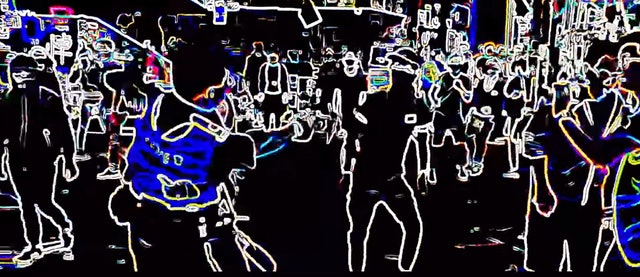
Explicit Content MV Screenshot original URL: Charmaine Fong Explicit Content MV There are gun shooting scenes of 831and 1111 incidents, https://www.auliving.com.au/201912/132479.html
2019年呢一場嘅社會運動催生咗一種嘅特殊音樂類型 — 抗爭歌曲 (protest songs)。呢類歌曲包括但唔限於一般意義上注重商業運作嘅流行曲,佢可以係任何嘅音樂類型,旨在用音樂去表達對社會政治議題嘅意見。獨立音樂呢段時間亦有唔少由反送中運動衍生嘅嘅歌曲創作。例如有JB喺2019年推出嘅《Fuck the Popo 》強烈表達對警察嘅蔑視同不滿,同埋LMF嘅《2019》展示出香港人對抗爭嘅堅毅同決心。另一邊廂,網絡上亦出現好多有反送中運動衍生出嚟嘅原創/二次創作作品,其中最具代表性嘅就係《願榮光歸香港》。當中歌詞以「眼淚」、「憤恨」同「血」嚟表達喺呢場運動中對當權者嘅不忿,歌頌民主自由作為香港嘅核心價值,並表達出「建自由光輝香港」嘅期望。自此之後,呢首歌成為咗喺當時示威現場必定會唱嘅大合唱歌曲。由此可見,呢首歌已經成為咗「香港人」社群共有嘅獨特符號。
The social movement in 2019 gave birth to a special type of music — protest songs. This category of songs includes but is not limited to popular songs that focus on commercial operations in the general sense. It could be any type of music as long as it is used for expressing opinions on social-political issues. During this period of independent music, many song creations derived from the anti-extradition movement. For example, JB released Fuck the Popo in 2019 and strongly voiced the dissatisfaction with police’s defiance. Moreover, LMF published 2019 to show the perseverance and determination of Hong Kong people to protest. In addition, more original songs or derivative works are about the anti-extradition law movement published on the Internet. One of the significant examples is Glory to Hong Kong (願榮光歸香港). Its lyrics – ‘tears (眼淚)’, ‘resentment (憤恨)’ and ‘blood (血)’ reflect the indignant towards those in power during the movement and chant democracy and freedom as the core value of Hong Kong, presenting the expectation of ‘May freedom give glory to Hong Kong (建自由光輝香港)’. Since then, this song has become an anthem that must be sung at the demonstration site. That is to say, it is an anti-extradition law amendment bill movement; 2019 Hong Kong protests unique symbol shared by the “Hongkongers” community.
Glory to Hong Kong, Composer: thomas dgx yhl, Lyricists:t, netizens from Lihkg.com (眾連登仔)
第四節:移民潮 (The emigration tide, 2020 onwards)
反送中運動一年後,全國人大常委會喺2020年6年30日實施《港區國安法》(National Security Law),立例規管有關顛覆、分裂國家、恐怖活動同勾結外國勢力等嘅罪行。唔少西方國家譴責中國呢個舉動係侵犯香港人權,並採取回應行動,推出多項惠及港人移民嘅政策(例如英國嘅BNO Visa同加拿大嘅港人避風港計劃)。香港迎嚟自九七以最大規模嘅移民潮。
於是呢兩年出現咗好多以移民潮為題材嘅廣東歌。Rubberband喺2021年6月出咗《Ciao》。「Ciao」係意大利文,同時有「你好」同「再見」嘅意思。歌詞中道出被「時代拆散 才道別那樣難」嘅無奈,慨嘆離別似乎係無法避免嘅事。
「這刻我們在一起 笑喊悲喜
作曲、填詞:Tim Lui 和 Rubberband 主唱:Rubberband 《Ciao》
巨浪翻起 亦是在一起
聽朝散聚誰先飛 未及嘆氣
細緻收起 曾同行一起的美
懇請每天 好好地過安定還是冒險
好好掛牽 來日後見
說了再見 約定再見」
呢首歌就好似一封留係香港嘅人寫俾即將離開香港嘅人嘅信,勉勵後者喺離開之後要好好生活,亦都要記住無論相隔幾遠,彼此嘅心都係連埋一齊。正如主唱6號所講,無論係留底定係離開嘅人,大家永遠都係香港人。最後,歌詞表達出堅信未來大家會再次相見嘅期盼,係俾眾多面對聚散嘅香港人力量同安慰。
對於大部份離開嘅人嚟講,移民並唔係一個容易嘅決定。尤其係呢兩年,好多人都走得好倉卒。MC $oHo & KidNey嘅《係咁先啦》以輕鬆玩味嘅形式描繪咗決定移民嘅人內心掙扎。歌詞將香港形容為一場派對,而離開派對就指移民。
「而家唔走 飛的都至少兩舊
作曲:鄧東成 填詞:蘇致豪 主唱:MC $oHo & KidNey 《係咁先啦》
要平就要落 旺角轉小巴走
但係呢啲嘢 我點會講出口」
雖然知道而家唔走就會無尾班車搭,但係主動提出要早走似乎又好掃興。但就算最後離開咗,心裏面仿佛仍然會帶住一種罪疚感,覺得對唔住仍然留喺派對嘅人。呢種矛盾又複雜嘅心情,的確係唔少移民港人嘅寫照。
同期以移民潮為題材嘅廣東歌仲有C Allstar喺2021年推出嘅《留下來的人》:
「許多人都相信離開的
作曲:徐沛昕 填詞:日云 主唱:C Allstar 《留下來的人》
人生走到該走的那時 痛著來話別
可知留低的與重生的 卻在這邊
怎撐過餘生的浩劫
(只可接受 新生活的蛻變)」
離開嘅人要拋開一切重新開始固然係困難,但留喺度嘅人要喺一個咁絕望嘅環境繼續過活,何嘗又唔係一件痛苦嘅事?然而,無論喺離開定留喺度嘅人,儘管佢吔所面對嘅並唔一樣,但當中大家所經歷嘅悲痛同無力感其實都係一樣沉重。而同樣地,歌詞最後講出「即使費時一點 即使快樂不輕易 最後仍可遇見」— 喺呢個動盪不安嘅時代,廣東歌對於香港人嘅意義已經唔單單係音樂,而係一種信念同盼望。
A year after the Anti-Extradition Law Amendment Bill Movement, the National People’s Congress carried out Hong Kong National Security Law (港區國安法) on 30th June 2020. It established crimes of secession, subversion, terrorism, and collusion with foreign organisations. Many western countries condemned China’s move as a violation of human rights in Hong Kong and took action in response. It included the launch of policies that benefited Hong Kong migrants, such as the BNO Visa in the United Kingdom and Permanent residence pathways for Hong Kong residents in Canada. Hong Kong has come to the largest migration wave since 1997.
Thus, there have been many songs with the theme of the migration wave in the past two years. In June 2021, Rubberband released Ciao. ‘Ciao’ in Italian means not only ‘hello’, but also ‘goodbye’ and ‘see you’. The helplessness is written in the lyrics – ‘When the times are dismantled it is hard to say goodbye’ – lamenting that parting seems to be unavoidable.
‘At this moment, we are being together with tears and laughter, sadnesses and happiness
In the storm, we are still together
Whoever’s leaving the next day, we don’t have time to sigh
But pack with us is the great memories we have together
Hope in each day, enjoy the stable but also adventurous life
Remember me, I’ll see you later
Goodbye for now and see you later’
Composer and Lyricist: Tim Lui and Rubberband Song by: Rubberband Ciao
This song looks like a letter written by someone who stayed in Hong Kong to someone who is about to leave Hong Kong, encouraged to live a good life and to remember no matter how far the distance is, their hearts connect to each other. According to the vocal – Mau Hou Cheong, whether people stay or leave, they are still Hongkongers. At the end of the lyrics, it expresses the hope that everyone will meet again in the future providing strength and comfort to the many Hong Kong people facing separation.
Migrating to another country is not an easy decision for most people. Many of them left Hong Kong hastily, especially in the past two years. MC $oHo & KidNey’s Got to Go (係咁先啦) describes the internal conflict of those who decide to emigrate by using a chill tone. It uses ‘party’ as a metaphor for Hong Kong, while people leaving the ‘party’ are migrants.
‘If I don’t leave now, taking a taxi will cost me at least $200
To save some money, I have to transfer a minibus from Mong Kok
But I wouldn’t dare to say such thing’
Composer: EAST CITY (鄧東成) Lyricist: So Chi Ho (蘇致豪) Song by: MC $oHo & KidNey Got to Go (係咁先啦)
He knows that there will be no more buses if he doesn’t leave at that time. Yet, taking the initiative to leave early seems to be a disappointment. Even though he leaves early, he likely feels guilty, feeling bad for leaving his friends at the party behind. The contradictory and complicated feelings are indeed a portrayal of many migrant Hong Kong people.
Meanwhile, another song with the theme of immigration is C Allstar’s For Those Who Stay (留下來的人) (2021):
‘Many people believe that leaving
Is when their lives come to the point that they should leave They farewell in agony
And for those who will stay and be reborn are over there
How will they survive this disaster
(They can only admit the transformation of new life)’
Composer: Jessica Tsui (徐沛昕) Lyricist: Anita Chung (日云) Song by: C Allstar For Those Who Stay (留下來的人)
It’s hard for those who leave their home and everything behind and start over again. Yet, isn’t it also hard for those who stay here to continue to live in such a hopeless environment? Regardless of the people who leave and stay here or the different situations they face and cope with, they experience the same great grief and powerlessness. Also, the song ends with ‘even if it consumes time, even if it is not easy to pursue happiness, we’ll see the light at the end of the tunnel’. In this turbulent era, Cantonese songs mean a lot to Hong Kong people. Not only because of the music itself, but also the belief and expectation.
總結 (Conclusion)
廣東歌陪伴香港人經歷主權移交前後40年,見證住每一代香港人喺同一個地方,面對唔同社會政治環境下嘅風雨飄搖。佢就好似一個老朋友一樣,成為香港人面對住政治變遷迷失時嘅傾訴對象,將内心的心聲化為歌詞嚟向大家傾訴。我吔深信每一個人,無論佢嚟自世界每一個角落,只要用心傾聽我吔寄語嘅歌曲,亦能找到分享到我吔嘅共嗚。
Cantopop has accompanied Hong Kong people for 40 years before and after the Handover of Sovereignty. It witnessed the place containing Hong Kong people of different generations, facing ups and downs in distinct social-political environments. It is like an old friend who can be the listener of every Hong Kong people when they are lost in political change. We strongly believe that people are able to find and share our resonance as long as they listen to and read our message from the songs, no matter where they are from.
Suggested readings:
Milan Ismangil. ‘Hong Kong is (No Longer) My Home: From Sam Hui to My Little Airport.’ In Made in Hong Kong: Studies in Popular Music, edited by Anthony Fung and Alice Chi, 124-131. New York: Routledge, 2020.
Stella Lau and Ivy Man. ‘Voices Shaped by the People and for the People: Cantopop and Political Crisis from the Colonial and Postcolonial Era.’ In Made in Hong Kong: Studies in Popular Music, edited by Anthony Fung and Alice Chi, 44-51. New York: Routledge, 2020.

Crystal Choi, Eunice Chan, Marco Lam
Crystal, Eunice, and Marco are a group of students from Hong Kong studying history and development studies at SOAS. They are dedicated to promoting the history and culture of Hong Kong.
SOAS History Blog, Department of History, Religions and Philosophy, SOAS University of London


